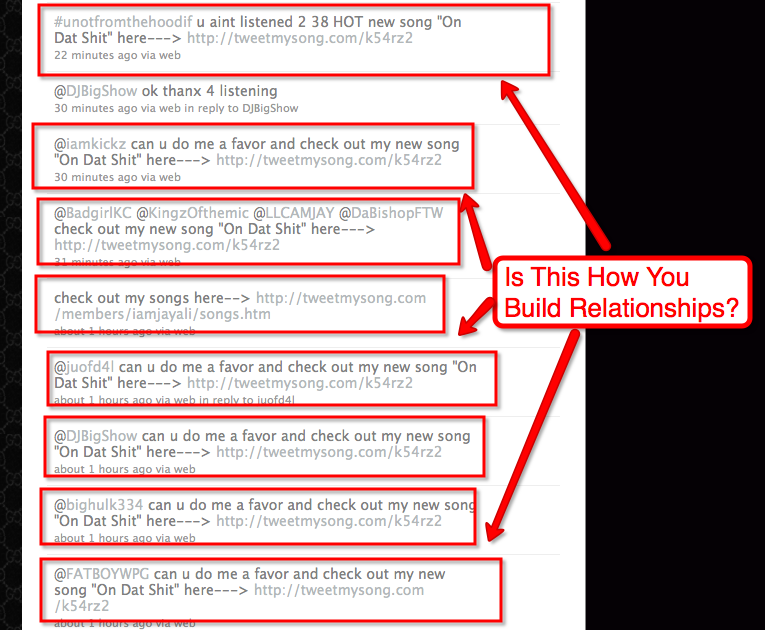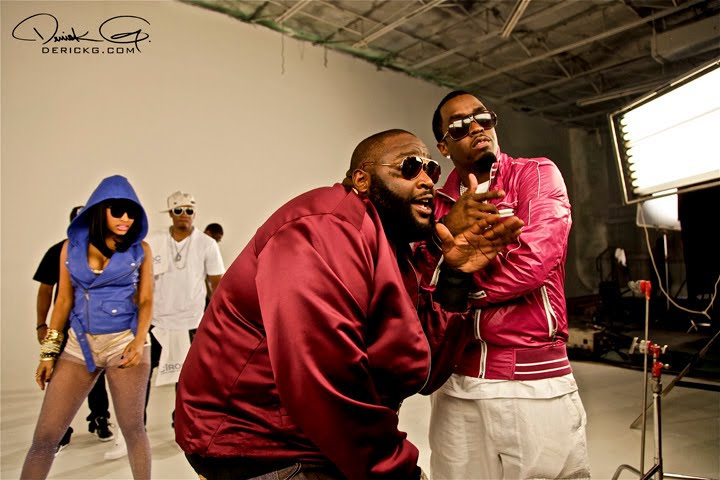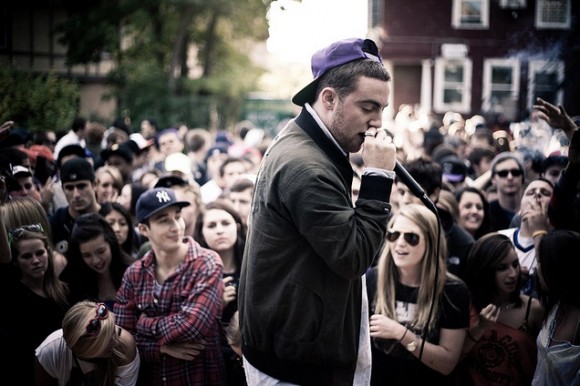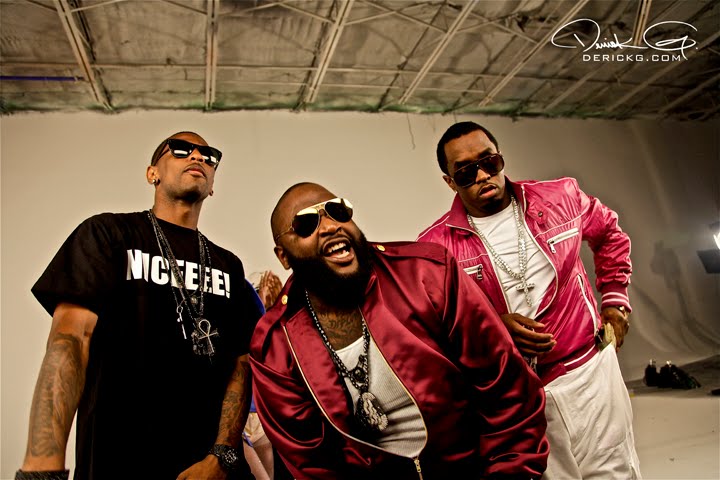What is the purpose of marketing? Is it to sell something? ….ummmm not exactly. In the end that might be what you want, but lets keep it simple: the purpose of marketing is to raise awareness of you and your brand. “Marketing is the process of making potential customers and clients interested in your products and/or services.” So marketing is grabbing attention from others. Making them aware of you. Then, if you catch someone’s attention, there’s a big possibility that they’ll become a fan and listen to your music and hopefully buy it and any other products that you put out. So really, the main goal of marketing is to get a response.
What exactly do I mean by that? Lets say you release a new single: the response you’re looking for is that you get a bunch of listens, great comments, retweets, likes, views, more show offers etc. Or say you reach out to someone on a social network, the positive response would be that they reply or acknowledge you, they show interest. Or what if you have a performance? The positive response you’re looking for is: many people show up to see you perform, people love your performance and they want to see you perform again and they are now even more interested in your music. It’s all about the response you get. That’s why they say it’s better to have 1000 active twitter followers that retweet and respond to you, than it is to have 30,000 followers that can care less about your tweets. And as I always say, it’s better to promote your music to 25 people that you know, than to blindly send your music to 100 people.
Because this is an over crowded industry, your first impression can really make you or break you. Record execs get so many music submissions daily, so it’s your job as an artist to make sure that your first impression is a lasting one. No need to beg for your music to get heard. You must give off a lasting first impression that makes people generally interested in you. Talent isn’t all that you need in order to succeed in the business. Think bigger than music. You need to give fans a clear image of who you are and what you stand for – the key is to be able to relate but also stand out. We all have our similarities and differences, so it’s not that hard, just be yourself. Think about what you want to be known for (aside from recording great music), and go from there.
Let’s start with the basics. From your name to your look to everything in between, you need to be able to capture an audience. KNOW YOUR PRODUCT!! What exactly are you promoting? KNOW your brand. What do you stand for? What is your niche’? What sets you apart from the other artists? If you can answer these questions you are already a step ahead. A good friend/mentor of mine and guru behind the #LikeableAssholes clothing line gave me a really cool analogy. He said, “Branding yourself is like getting ready to go to the club. You don’t just wake up out of bed and head out, first you shower, throw on a nice outfit and really groom yourself, THEN you’re ready to hit the club” – that’s exactly what branding does. It polishes your image so that you get a better response from potential fans, business opportunities etc. It gets you ready to face the industry.
Examine yourself. What name are you using to market yourself? Does it ring a bell? Is it simple and easy for people to remember? For example, “John Doe” and “King John Doe the Greatest Rapper Alive,” which name would be more marketable? You guessed it, the first one of course. Also, does your Twitter name match your Facebook and all of your other social networking sites? Can someone go on Twitter and find you, then go on Google and search for the same name and find all of your websites? You must keep it simple and to the point. My name is @BreezyB215 on Twitter, you can find me at facebook.com/breezyb215, as well as Instagram @BreezyB215. Your email should also be some version of your name (example: johndoe@gmail.com). The easier it is for people to find you, the better luck you will have getting people to listen to your music or check out any other product you have to offer. In order to market yourself properly, you also need to make sure to have at least the basics: You need some sort of press kit or website so that you have one place where all of your music/videos/show dates etc. can be found. You can start with a press kit but then you will eventually need a website. There are some great options out there that allow you to do this for free (Try wordpress.com to create a simple website, and check out myartistdna.com for a free press kit). Business cards are also very professional and good to have in those moments when you don’t have much time (which is often since you’re so busy with your music right?).
Examine different techniques to grab attention. First off, how do you expect to get the proper response out of someone if you don’t get to know them a bit? Why would you expect someone to care enough to listen to your music and share it if you don’t care enough to show interest in them? That’s a bit one-sided if you ask me. You need to show genuine interest in others if you expect the same in return. Don’t just share your music and hope that people listen. Try asking an engaging question, or if they are another artist, listen to their music and comment them on it. Then they will be more willing to listen to you. If someone that you want to network with asks a question to their TL, answer it and engage in conversation from there.
The next big thing that I see many artists have a problem understanding is that you need to find out how people want music submitted before you try to send them music. You have to remember, there are those that are actively searching for new music and therefore they might be interested in hearing your music in your first conversation. There are those that like to get to know you first before they even think to listen to your music. There are those who are already very well established and connected so in order to approach them and get a response you will need to really catch their attention. There are those who would rather speak through email and it might even take a few weeks for them to get back to you. There are also those that can care less about your music because they are not concerned with finding new talent or hearing anything unless it’s on the radio or their friend referred them. There are those who see you as competition so they might not listen to your new music and they sure as hell won’t share it, so sending your music to them is pointless. Everyone is different and everyone has their own way to do things but the common ground between all of them is that if you approach them the right way, they will be receptive. Don’t mention or tag people with your music, approach them the right way then once you find out that they do accept music submissions, find out how they want it.
Learn to get your point across. Stick to the bottom line. Have a clear view of why you’re reaching out to a person before you approach them, this way they will have a clear understanding of their role. The worst way to network is by randomly hitting someone up, they ask you what it is that you want to accomplish, and you sit there with a blank look on your face because you have no idea. Most of the time you just want that person to listen to your music. Then there are DJs who you want to not only listen to your track but spin it also. Then there are music execs that you want to listen plus pass it on or possibly invest in you. You get my point. All I’m saying is that you need to think before you act. This business is rough, you don’t want to just wing it.
Be personable. No one wants to speak to a robot. You gain more attention by personalizing things such as emails and even tweets. If you send me a “hey check out my music” tweet, then I look at your Twitter and you’re saying the same thing to a thousand other people, that only shows that 1. you don’t have a marketing plan, 2. you’re desperate to get your music heard and 3. I’m not special enough for you to personally ask me to take a listen (you aren’t paying attention anyway you’re just spamming random people) . This isn’t going to get you the response that you want. Be sure to personalize everything as much as you can. Do research on who you are sending music to and know why you are sending your music. Do you need help with promotion? Are you interested in their marketing services? Did they ask for song submissions for their label or management group? When you approach a DJ about playing your music, do you ask them to play your music right off the bat? Or do you talk to them, find out where they play, and find out what kind of music they are looking for? And again, how do you know if they even accept submissions? Put some thought into things, then do.
I’m sure that there are already people in your circle that can help you market your music. Learn to utilize the network that you already have to build your brand. How many people do you know that would listen to your new single right now if you sent it to them? (write them down) How many music blogs are you in contact with that might post your video? (write them down as well) You want to be organized so that you’re not scrambling all over the place trying to find things and so that you can have a clear handle on your marketing. You can even categorize your followers into lists on Twitter – separate followers into ‘blogs’, ‘producers’ ‘artists’ ‘fans’ (consider fans people that you KNOW will RT your video).

Find your target audience and give them what they want. You must understand that your music isn’t for everyone. Before you release that hit single, before you go on tour and perform in front of your fans, before you can sell a whole bunch of merchandise, you first have to have an idea of who your potential fans are. I know some of you are thinking “but how can I know who/where my fans are before I even start to promote?” – it’s pretty simple actually. There are a few steps that you can take to help you narrow it down. First things first, who can you relate to? Know what you stand for, and who would benefit from you. Who does your music relate to? Do you record a lot of love songs for the ladies? Think about the age group that you appeal to. Is your music for a younger crowd or is it pretty vulgar and only for adults? Remember, the goal isn’t about letting everyone hear your music, it’s about getting your music to the right people. You’re not going to promote a hip hop showcase to a country music lover. Narrow it down a bit, do some research on the different areas of the country/world that certain genre’s are appreciated the most. Basically, start where you know it works, then spread from there. Instead of putting on a blindfold and hoping you hit the target, take the blindfold off and aim at the target. Make sense?
The key is to keep people engaged. Keep your fans interested and in the loop – they say that it only takes 1000 super fans for an artist to make a living. Meaning, if you found 1000 people that will share all of your music, pay attention to your every tweet/status, buy all of your merchandise and stay updated on all the latest YOU, you can earn a nice living off of your music. This takes a lot of fan engagement. Get creative. Interact. Respond to tweets/comments etc. Appreciate those around you.
Learn how to choose the right songs to promote. Pick a song that has a nice beat, great lyrics, and a nice hook and never release any music that is not properly mixed! You are being compared to music that is already on the radio, make sure your quality matches that of those who are already out there. Take the time to put in that extra effort. And once you do decide to release a single, you need to drop it on em hard. Releasing a single doesn’t mean tweeting it and posting it to Facebook so that you’re friends/followers can see it. That’s not a release. You really need to have a nice plan to make your single go viral. With the right sources, you can make your record spread like wildfire. You might have to spend some money to do it, but best believe it will be worth it. Lay out the groundwork before you release. Find the websites/music blogs that get the most amount of traffic, get your video posted to as many as you can. This will bring attention to your music from others that don’t know who you are. Think big, think broad. And watch your timing! Don’t get ahead of yourself. You just recorded your first album and you’re excited to release it, however, are people anticipating your release? Choose a single, shoot a quality video for it and release that a few weeks before you release your full album. Build anticipation. Get people excited to hear more. You don’t want to release a new single or mixtape every few weeks, we call that ‘music overload’. Be sure to properly promote the first single or mixtape, before you even think of releasing another one.
Capture your audience by putting on a great performance. Performing is a huge money-maker for artists, so why is it that so many artists out there just like to ‘wing it’ instead of really putting their all into every show? You might think “it’s just an open mic it’s no biggie” but I’m sure the record exec hidden in the audience thinks otherwise. Use your performance to keep your fans engaged and to gain new ones. Also be sure to always have business cards, hard copy CDs, and even some merchandise to either give away or sell at your shows. It’ll feel great to see your fans wearing your shirt to your next performance.
In conclusion, the key to making a sale is not to sell. Marketing doesn’t have to seem like marketing. Having a simple conversation with someone will allow your name to be known. If you inform people about a product (your music/brand for example), but don’t necessarily try to shove it down their throats, you’ll have a better chance at making that ‘sale’ in the end. Just like you don’t enjoy sales calls, spam emails etc, no one likes emails, tweets, posts on their page that they didn’t ask for. There is such thing as over promotion. When you ‘over promote’ you get over looked. The key is to give a little and keep everyone wanting more! No one wants to hear about your music all day, they want to get to know YOU. You have to learn how to get their attention in other ways. Always think WHY? …why should someone listen to your music? Why should they respond to you? WHY? And finally, you must also always respect constructive criticism. How are you supposed to improve if all you want is for people to tell you how great you are? There will always be positive and negative responses to everything you do, that’s life. You must be open to both and learn from all responses.
I hope this helped put some things into perspective. To all the artists that are really putting in work… #SALUTE!!!




